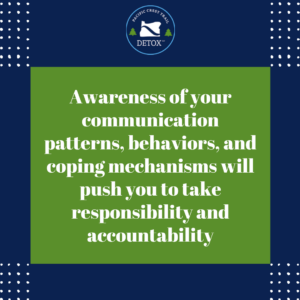Addiction rehab can strain some of the most important relationships in your life. After all, you and your loved ones will be undergoing emotional, physical, and psychological stress during your recovery.
However, rebuilding these connections is a crucial step in your recovery journey. If you were to ask, “What does life look like in recovery?”, you only need to know that relationships are essential. You know now from first-hand experience that they provide encouragement, accountability, and a sense of belonging. So losing all of this can truly be distressing.
If you’re currently struggling with repairing damaged relationships after drug abuse and addiction rehab, let’s dive in.

Evaluating the Need to Rebuild Relationships
Drug abuse and alcohol addiction can significantly strain or destroy your relationships. As you continue your recovery journey, assess which of these relationships are worth keeping.
Were these relationships strained because they cared or because they discriminated? It’s time to find out.
Assessing The Impact Of Addiction On Relationships
Before you begin rebuilding your relationships, honestly evaluate the damage first. It will be stressful, but consider the specific ways your substance abuse affected your relationships. Ask yourself the following questions: Did you neglect your loved ones? Did you have tendencies to engage in harmful behaviors? Did you create or contribute to financial instability?
When you can point out your faults during these times, you will better understand the consequences. These will allow you to acknowledge any pain you’ve caused your loved ones.
Understanding Which Relationships Are Worth Rebuilding
It’s just as important to understand that not all relationships can or should be repaired. Prioritize your well-being and focus on the relationships you know are healthy and supportive. Look out for factors such as mutual respect, trust, and a shared commitment to your recovery.
In this process, it’s also crucial to recognize and acknowledge the relationships that must stay severed for your well-being.
The Importance Of Self-reflection And Self-awareness
Before you reach out to others, it’s recommended to engage in some self-reflection. Trace back in time and determine how your actions contributed to these relationships. Awareness of your communication patterns, behaviors, and coping mechanisms will push you to take responsibility and accountability.
Challenges of Rebuilding Relationships
Rebuilding relationships after addiction rehab can be emotionally challenging. Anticipate some of these potential hurdles and patiently approach this process.
Potential Difficulties And Setbacks In Mending Broken Connections
Rebuilding connections after the damage caused by addiction rehab can be a frustrating process. You and your loved ones may have periods of regression, misunderstandings, and even judgment. This can lead to discouragement and doubt about the possibility of mending your connection.
Addressing Trust Issues and Emotional Wounds
Breakdown of trust with your loved ones is a common consequence of alcohol and drug abuse. Remember that all forms of betrayal, dishonesty, and broken promises in the past may have emotionally wounded your family.
Addressing these wounds will require consistency, honesty, and transparency from you. But when you’ve just gotten out of addiction rehab, this may also be difficult on your end.
Expect that it will be slow and will involve a fear of disappointment.
Managing Expectations From Both Sides
Mismatched expectations will cause tension and frustration in your reconciliation process. For example, you may have unrealistic hopes that everything could be fixed immediately. However, your loved ones may still hold some resentment or fear of being hurt. Differences such as these can cause misunderstandings and disappointment that can strain your relationship.
Steps to Rebuild Bridges
Rebuilding relationships after addiction rehab requires intentional and patient effort. It will be a challenging and lengthy process.
Begin slowly and start on the right foot by taking these steps to repair your damaged relationships.
Open Communication
Honest and open communication is essential for rebuilding trust within your family. Take the time to express your feelings, thoughts, and experiences. Throughout this period, be open, transparent, and respectful. When you’re capable, encourage your loved ones to do the same.
Active listening and talking will be crucial in this process. Do your best to understand their side without interrupting them or being defensive. Remember, your feelings and experiences are valid, but so are theirs.
Apologizing And Making Amends
Taking responsibility and accountability is crucial for all relationships. Offer a sincere apology for the pain and hurt your addiction has caused. It’s best to be specific about your mistakes throughout this process. Afterward, make amends by being committed to change. You can start by attending support groups, spending more time with your family, or starting a healthier habit.
Building Trust
Rebuilding trust requires time and consistent effort. Show you can be reliable and honest by following through with your commitments. This can be as simple as walking your family dog twice a week after you’ve promised to do so. Be patient with the process and understand that trust will not be immediate. Additionally, avoid defensiveness and be open to feedback.
In this process, be patient with yourself as well. Don’t commit to too many responsibilities, and celebrate when you’ve successfully followed through with one.
Seeking Support And Professional Guidance
Rebuilding relationships can be emotionally challenging. Seek support from your friends, family members, and support groups to keep you going. Addiction rehab is undeniably tough, and life after recovery can feel like a very vulnerable time.
Consider meeting with a therapist or a counselor to help you navigate this process. They’ll help you manage and process your emotions, and provide you with strategies for effective communication.
In Conclusion
Rebuilding relationships after the challenges of addiction recovery is a complex and challenging journey. This is true even if you’ve already undergone compassionate detox care, rehabilitation activities, and support groups. Know that even after rehab, this journey requires time, patience, and commitment.
When you begin reconciling with your loved ones, actively acknowledge the pain you’ve caused, commit to rebuilding trust, and set healthy boundaries. This process should be healthy for both parties, so don’t forget to be patient with yourself as well.
Healing takes time. And if you’re still looking for compassionate addiction treatment in Oregon, consider contacting us at Pacific Crest Trail Detox today!



